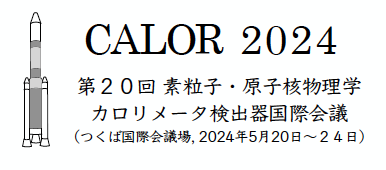Speaker
Description
The Crilin calorimeter is a semi-homogeneous calorimetric system that uses Lead Fluoride (PbF2) crystals with UV-extended Silicon Photomultipliers (SiPMs). Proposed for the Muon Collider, it requires high granularity to distinguish signal particles and address substructures for jet identification.
Anticipating substantial occupancy due to beam-induced backgrounds, simulations indicate a photon flux with an average energy of 1.7 MeV and approximately 4.5 MHz/cm$^2$ fluence. Prioritizing time-of-arrival measurements within the calorimeter is crucial for associating clusters with interaction vertices. The calorimeter's energy resolution is vital for determining jet kinematics.
Operating in a challenging radiation environment, with exposure up to 1 Mrad/year total ionizing dose (TID) and a neutron fluence equivalent to 10^14 neutrons 1 MeV/cm$^2$/year, extensive radiation hardness studies confirm the system's effectiveness.
Prototype (Proto-1), with two layers of 3x3 PbF2 crystals, achieved a timing resolution below 50 ps for energy deposits exceeding 1 GeV during 2023 tests. A comprehensive overview, including mechanics and electronics, along with test beam outcomes, is presented.
Construction is underway for a larger 5x5 crystal matrix prototype with 5 layers, to be completed in 2024. Testing is scheduled for the summer of 2025.
